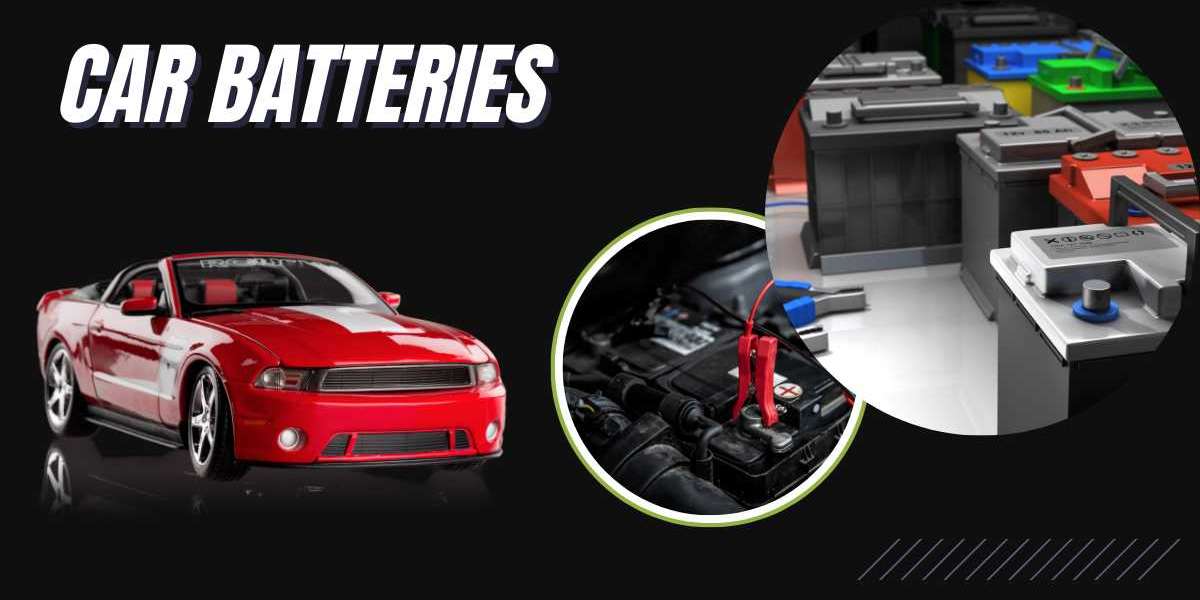Every car owner knows that a well-functioning car battery is vital for the smooth operation of their vehicle. Whether starting your engine on a cold morning or using electrical components like the radio or lights, the car battery is the unsung hero behind these everyday functions. In this article, we'll dive deep into the critical aspects of car batteries, offering a practical guide to help you maintain and choose the right one for your vehicle.
What Exactly Is a Car Battery?
A car battery is a crucial component of your vehicle's electrical system. It supplies the power needed to start the engine and powers other essential electrical systems like lights, wipers, and the radio. Modern car batteries are lead-acid batteries with lead plates and sulfuric acid to store and release energy.
Unlike some other types of batteries, car batteries are designed to provide a quick burst of power to start the car rather than to provide a constant flow of energy. After the engine starts, the alternator recharges the battery and supplies power to the car's electrical systems.
The Lifespan of Car Batteries
Car batteries last about 3 to 5 years on average, but this can vary depending on various factors. If you live in a region with very hot or cold temperatures, your car battery may not last as long. High temperatures can cause the battery's internal components to wear out faster, while freezing temperatures can make the battery less effective at holding a charge.
It's essential to monitor the health of your car battery regularly to avoid unexpected breakdowns. Here are some common signs your car battery might be nearing the end of its life:
- Difficulty starting the engine: If your car struggles, it may be time to replace the battery.
- Corroded battery terminals: Rust or corrosion around the battery terminals can prevent the battery from charging correctly.
- Dim headlights: If your headlights seem dim, it could indicate that your battery is losing power.
How to Maintain Your Car Battery
Proper maintenance can significantly extend the life of your car battery. Here are some simple yet effective tips:
- Keep the terminals clean: Over time, dirt, grime, and corrosion can build up on the battery terminals, which can cause electrical problems. Regularly clean the terminals using a mixture of baking soda and water to remove any buildup.
- Check the charge level: Many modern cars have a battery charge indicator showing whether your battery is healthy or needs attention. Regularly check this indicator to ensure your battery is functioning correctly.
- Avoid short trips: Short trips prevent the alternator from fully recharging the car battery. Try to take longer drives whenever possible to ensure your battery gets the total charge.
What Affects Car Battery Performance?
Several factors can influence the performance of your car battery, and understanding them can help you take proactive steps to keep your battery in top condition. Some of the main factors include:
- Climate: As mentioned earlier, extreme temperatures can significantly impact battery life. If you live in a particularly hot or cold area, consider investing in a battery designed to perform better in those conditions.
- Driving habits: Frequent short trips or excessive idling can drain your car battery without giving it enough time to recharge. Try to drive your car for at least 20 minutes to ensure the alternator has time to recharge the battery.
- Electrical loads: Using too many electrical accessories, such as lights, heated seats, or the radio, while the engine is off can drain your battery. Be mindful of how many electrical components you use when the engine is not running.
How to Choose the Right Car Battery
Choosing the best car battery for your vehicle ensures optimal performance. Here are a few key factors to consider:
- Size: The size of the car battery is essential, as it must fit in your vehicle's battery tray. Refer to your car's manual for the exact size specifications.
- Cold-cranking amps (CCA): This rating indicates how well the battery can perform in cold weather. If you live in a colder climate, choose a car battery with a higher CCA rating.
- Reserve capacity (RC) refers to how long a car battery can run without the engine running. Higher RC ratings are generally better, mainly if you frequently use electrical systems while the engine is off.
- Brand and warranty: Opt for reputable brands that offer solid warranties. Popular brands like DieHard, Optima, and ACDelco are known for making durable and reliable car batteries.
Top 5 Car Battery Brands in 2024
Choosing a trusted brand can make a big difference in battery performance. Here are the top 5 car battery brands that stand out in 2024:
- Optima Batteries – Known for their long-lasting performance and durability, they are designed to withstand extreme weather conditions and rough handling.
- DieHard – Offering standard and AGM (Absorbent Glass Mat) options, DieHard batteries are known for their reliability and strong warranty coverage.
- ACDelco – A popular choice for many car owners, ACDelco provides high-quality batteries with excellent cold-cranking amps.
- Interstate Batteries – Interstate Batteries offer various options for different vehicles and dependable performance at an affordable price.
- Bosch – A trusted name in car parts, Bosch batteries are known for their innovative features and superior lifespan.
How to Test a Car Battery
If you suspect your car battery is losing power, testing it is a good idea. You can test your battery using a voltmeter. Here's how:
- Turn off your car and open the hood.
- Set the voltmeter to DC (direct current).
- Place the positive (red) lead on the battery's positive terminal and the negative (black) lead on the negative terminal.
- A healthy car battery should show a voltage between 12.4 and 12.7 volts when the engine is off. If the voltage exceeds 12 volts, it's time to replace your battery.
Signs That Your Car Battery Needs Replacement
Even with regular maintenance, all car batteries will eventually need to be replaced. Here are some signs that your car battery may need a replacement:
- Engine cranks slowly: If your engine takes longer to start, it could be a sign that your battery is losing its charge.
- Warning light: Many cars have a battery warning light on the dashboard. If this light comes on, your battery or charging system may be faulty.
- Battery fluid leaks: If you notice fluid leaking from the battery, it's a sign of damage and may require immediate replacement.
Conclusion
Your car battery is one of the most essential parts of your vehicle, and keeping it in good condition is crucial to ensure your car runs smoothly. By following simple maintenance tips, understanding the factors that affect battery performance, and choosing the correct battery for your needs, you can extend the lifespan of your car battery and avoid costly repairs. Always keep an eye on the health of your car battery and replace it when necessary to keep your vehicle operating efficiently.








